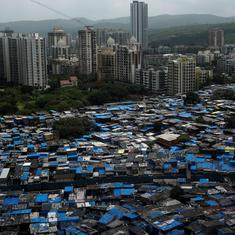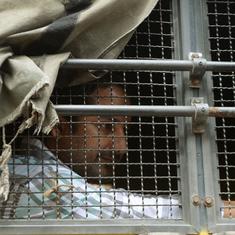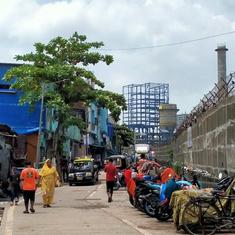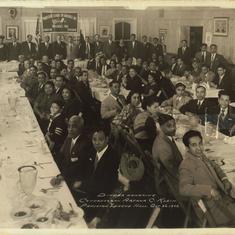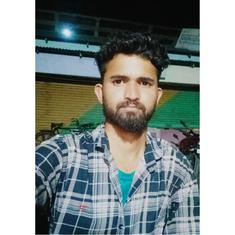Madhukar Zende was a Mumbai Police officer who achieved fame for arresting the notorious international criminal, Charles Sobhraj, also known as the “bikini killer” for having murdered numerous young women he had befriended across Asia. Zende traced him to a popular restaurant O Coqueiro in Goa and detained up from there.
Zende’s book Mumbai’s Most Wanted reflects the more important investigations entrusted to him in the course of his career. The very first account was of how he brought to book the man who in 1980 murdered a college professor, Shanta Devi, when she was travelling alone in a First Class women-only compartment of a Mumbai local train. Two years after the murder, in 1982, Zende solved the case. The culprit was a petty criminal who operated on trains.
I happened to be the Deputy Inspector General of Police, Railways, when this murder was reported. It created a sensation because the victim was a middle-class South Indian woman. When such an incident occurs, citizens from the same economic bracket as the victim get alarmed.
The case kept me occupied for a month or two till I was transferred to Thane as its first police commissioner in early 1981. Even after I demitted office in the Railways. I kept thinking of this murder as it had remained unsolved. It was only after I was installed as Mumbai police commissioner in February 1982 and Zende was entrusted with this unsolved case by his seniors in the Crime Branch that success was finally achieved.
Zende describes in detail how he solved the case through a combination of persistence, observation, information from petty criminals operating on local trains and, of course, a big dollop of luck. It was only after reading Zende’s book that I learnt details of the investigation conducted by his unit.
Zende’s book reiterated why the City’s Crime Branch is held in esteem by citizens. The skills that have raised the Mumbai Police to a national or even international level are because of its Crime Branch and officers like Madhukar Zende.
Two other officers named by the author come to mind. Arvind Patwardhan and Madhav Gupte fall in this category of extraordinary officers who have contributed a great deal to building the good name of the Mumbai Police. These were officers to whom success in their endeavours and self-esteem mattered above all else.
In a new book, the former ACP of Mumbai Police recalls how he arrested serial killer Charles Sobhrajhttps://t.co/nonHPQenjC
— Scroll.in (@scroll_in) May 21, 2025
An excerpt from ‘Mumbai’s Most Wanted: The Thrilling Case Files of a Supercop’, by Madhukar Zende.
As commissioner, I was justly proud of having such officers under my command. What is truly worrying is the recent fall in standards following a drop in leadership qualities.
An aspect of Zende’s character and mental make-up attracted me tremendously. He believed in service to the people. In pursuit of this principle, he kept contact with citizens in the localities entrusted to him. It served him during times of civil unrest.
In one instance in 1992, when he was assistant commissioner of Police, Pydhonie division, a hostile crowd had surrounded a police vehicle with injured policemen and kept them captive. Zende approached the crowd alone, without other officers accompanying him. Since the people knew him and trusted him, they allowed the vehicle to leave the troubled area without any force being used by the police. Bloodshed had been avoided.
The fact that Zende harboured not an iota of communal bias was known by the people of the area. That really helped.
Those who are addicted to police-related stories and even those who are only marginally interested will like Madhukar Zende’s Most Wanted. For young police officers it is a must read. They will appreciate the importance of credibility, earned through integrity, fairness in dealings and justice.
Another book that caught my attention was The Fault with Reality by Anil Kumar Singh. Singh was a young journalist with The Times of India when we first met in the late eighties. What distinguished him from many others in his profession was his persistent curiosity and uncompromising integrity which has guided him throughout his career.
Singh is an authority on the city of my birth. He has spent the better part of his life in Mumbai, where I was born 96 years ago. But his knowledge of happenings and trends in different spheres of development and governance certainly exceeds mine by a distance. There are a few references to police in his book. But he delves also on the city’s vanishing trees, pavements and the quality of its roads, encroachment on wetlands which leads to flooding during heavy rains.
Anil Singh’s collection of his articles is a veritable judgment on the quality of governance by successive governments and touches on a long list of woes experienced by its residents. I am one such resident whose attention has been drawn to some aspects of civic life that I had not noted carefully previously. For example, the threats the city will face if mangroves and open spaces are utilised for unbridled housing construction as is happening presently.
Singh has named some Indian Police Service officers with a public conscience. A notable omission in his list is of D Sivanandhan who undoubtedly was one of the best the service can boast of. After his retirement he continues to do public service – in his case by setting up Roti Bank, which feeds tens of thousands of poor and hungry children and some needy adults every single day.
The Public Concern for Governance Trust, an NGO founded by the former cabinet secretary BG Deshmukh, leading city pediatrician Dr RK Anand and I send its interns to study how Roti Bank functions. The young students return inspired. Sivanandhan is presently the Chairman of the trust.
It is not because of having been mentioned honourably by this perceptive journalist that I recommend concerned citizens of my city to read The Fault With Reality. They should read it to educate themselves on how well or how shoddily this city is governed.
Julio Ribeiro served in several senior positions as a police officer and was India’s ambassador to Romania.



